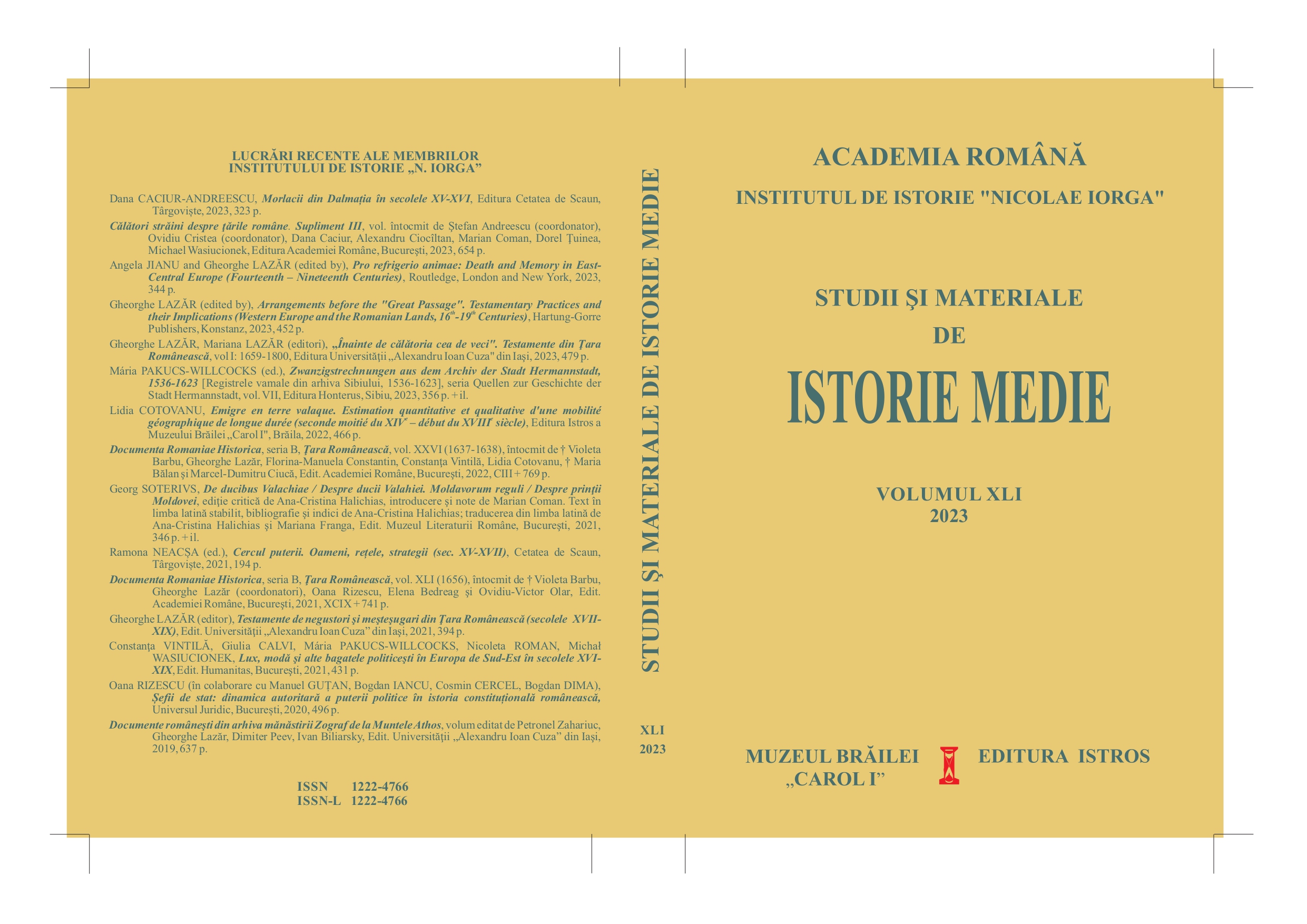Sabotaj al cruciadei antiotomane sau necesitate politică italiană? Un raport al lui Leonardo Botta din 27 iulie 1475
Sabotage of the Anti-Ottoman Crusade or Italian Political Necessity? A Report by Leonardo Botta from 27 July 1475
Author(s): Ioan Aurel Pop, Alexandru SimonSubject(s): Diplomatic history, Military history, Political history, 15th Century, The Ottoman Empire
Published by: Institutul de Istorie Nicolae Iorga
Keywords: Leonardo Botta; Luigi Guicciardini; Galeazzo Maria Sforza; Stephen III of Moldavia; crusading; diplomacy;
Summary/Abstract: On 27 July 1475, Leonardo Botta, Milan’s representative in Venice, wrote to his master, Duke Galeazzo Maria Sforza. He informed him that he had convinced Florence’s envoy in the Laguna, Luigi Guicciardini, not to inform the Serenissima that his Signoria had received Pope Sixtus IV’ recent message. The Papal brief had been sent on 1 July, at the request of Venice in the support of Stephen III of Moldavia, the favourite of the republic. Botta’s task had been relatively easy. Guicciardini was a close associate of the Sforzas and former podestà of Milan. In all likelihood, he had been in possession of the Papal brief for some time. But Guicciardini had been in doubt whether or not to let Venice know that Sixtus IV had fulfilled her demand and written even to usually pro-Ottoman Florence. Nevertheless, Botta was not very comfortable with his actions. He conveyed a series of explanations to Sforza. For Italian reasons, the duke was highly interested in the events in the (South-) East, as well as sceptical of the real outcome of anti-Ottoman warfare (not to mention his – reasoned – reluctance towards crusading and crusader ideals and aims). Was Botta’s endeavour an act of sabotage of the anti-Ottoman crusade proclaimed by Sixtus IV or a diplomatic deed emerged from Italian political needs? Botta was otherwise highly supportive of anti-Ottoman warfare, as well as – genuinely – found of Stephen III. Botta felt that his action was sabotage. Nevertheless, the experienced Botta did it. Milan could not afford that Venice’s Italian standing is improved through crusading in the East. From Sforza’s perspective (whose response to Botta’s report remains unknown), Botta’s enterprise was acceptable (he did not “recall” Botta). Sforza had sympathy for Stephen and his anti-Ottoman resilience (in return, on both crusader and Italian soil, Sforza could not stomach Matthias Corvinus). Yet Italian matters took precedence. The duke could not take the chance that any (Papal) advantage was given to the double-dealing Serenissima. At that time, Venice had a six months truce with the Porte, made possible by the major anti-Ottoman victory of her protégé, Stephen, in January 1475. The truce had eased the Ottoman conquest of Genoese Caffa in the Crimea, in early June. The fall of Caffa had sent shock-waves – via Stephen too – across Italy, where Genoa was Milan’s dominium. Under these circumstances, it could be argued that Milan attempted to respond in kind to Venice’s policies by foiling/ sabotaging her own anti-Ottoman designs centred around Stephen III of Moldavia. Such a hypothesis requires however additional proof. At present, we know only of two – identical – messages sent by Sixtus IV, at Venice’s request, on 1 July 1475: to the Signoria of Florence (the fief of his soon to be mortal enemies, the Medici) and to Ludovico III il Turco, margrave of Mantua (whose son, Cardinal Francesco, was later to arbitrate the feud arisen between Matthias Corvinus, supported by Naples, and Stephen III, backed by Venice, over the allocation of Italian anti-Ottoman crusader funds).
Journal: Studii şi Materiale de Istorie Medie (SMIM)
- Issue Year: XLI/2023
- Issue No: XLI
- Page Range: 9-17
- Page Count: 8
- Language: English, Romanian
- Content File-PDF

